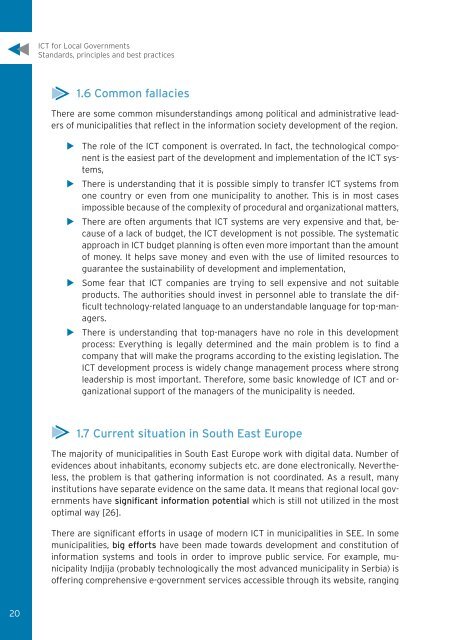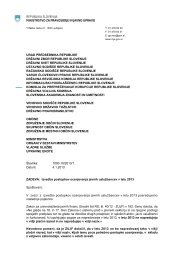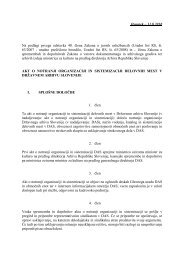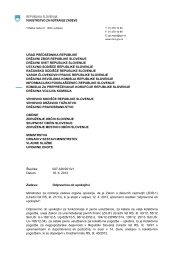for Local Governments
for Local Governments
for Local Governments
You also want an ePaper? Increase the reach of your titles
YUMPU automatically turns print PDFs into web optimized ePapers that Google loves.
20<br />
ICT <strong>for</strong> <strong>Local</strong> <strong>Governments</strong><br />
Standards, principles and best practices<br />
1.6 Common fallacies<br />
There are some common misunderstandings among political and administrative leaders<br />
of municipalities that reflect in the in<strong>for</strong>mation society development of the region.<br />
� The role of the ICT component is overrated. In fact, the technological component<br />
is the easiest part of the development and implementation of the ICT systems,<br />
� There is understanding that it is possible simply to transfer ICT systems from<br />
one country or even from one municipality to another. This is in most cases<br />
impossible because of the complexity of procedural and organizational matters,<br />
� There are often arguments that ICT systems are very expensive and that, because<br />
of a lack of budget, the ICT development is not possible. The systematic<br />
approach in ICT budget planning is often even more important than the amount<br />
of money. It helps save money and even with the use of limited resources to<br />
guarantee the sustainability of development and implementation,<br />
� Some fear that ICT companies are trying to sell expensive and not suitable<br />
products. The authorities should invest in personnel able to translate the difficult<br />
technology-related language to an understandable language <strong>for</strong> top-managers.<br />
� There is understanding that top-managers have no role in this development<br />
process: Everything is legally determined and the main problem is to find a<br />
company that will make the programs according to the existing legislation. The<br />
ICT development process is widely change management process where strong<br />
leadership is most important. There<strong>for</strong>e, some basic knowledge of ICT and organizational<br />
support of the managers of the municipality is needed.<br />
1.7 Current situation in South East Europe<br />
The majority of municipalities in South East Europe work with digital data. Number of<br />
evidences about inhabitants, economy subjects etc. are done electronically. Nevertheless,<br />
the problem is that gathering in<strong>for</strong>mation is not coordinated. As a result, many<br />
institutions have separate evidence on the same data. It means that regional local governments<br />
have significant in<strong>for</strong>mation potential which is still not utilized in the most<br />
optimal way [26].<br />
There are significant ef<strong>for</strong>ts in usage of modern ICT in municipalities in SEE. In some<br />
municipalities, big ef<strong>for</strong>ts have been made towards development and constitution of<br />
in<strong>for</strong>mation systems and tools in order to improve public service. For example, municipality<br />
Indjija (probably technologically the most advanced municipality in Serbia) is<br />
offering comprehensive e-government services accessible through its website, ranging

















